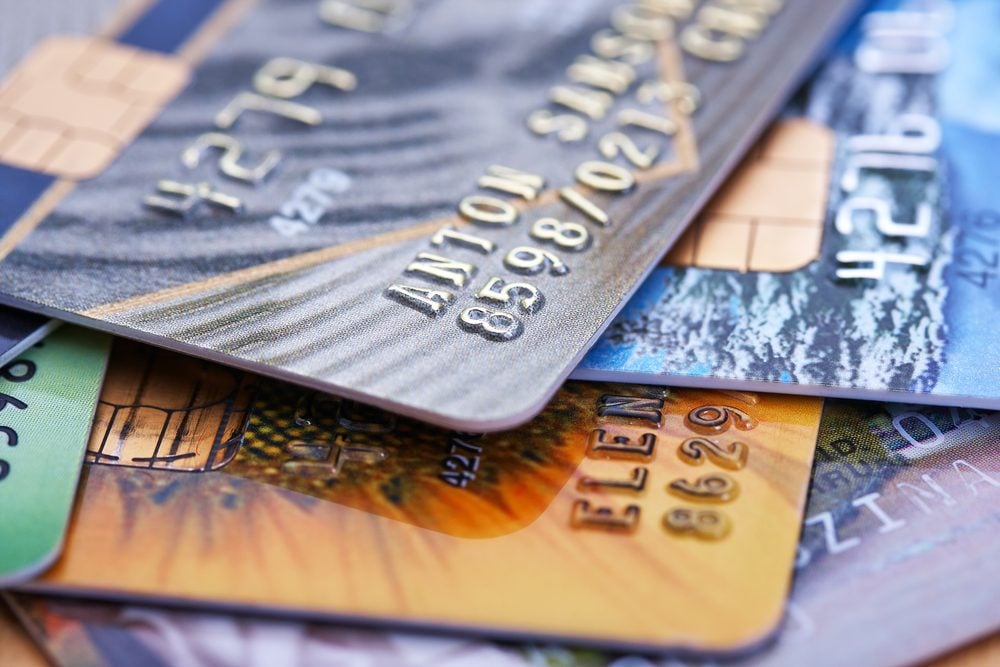You have to start planning things differently when your salary comes, such as paying debts, thinking of fixed expenses, how much to save, emergency funds, investments, retirement planning, and many other things. So can you achieve all this? It’s by taking small steps and starting by preparing a budget for you and your family. It might sound boring but following some basic financial tips can be a life-changer for you. As the new financial year has just started, you must be looking to make a fresh financial start. Numerous people start by reading books related to financial planning, seek various blogs, and come across various personal financial tips and tricks. But all this, instead of solving your problem, confuses you, isn’t it? That is why we have created this article for you, which is different from others because we have made a collection of some of the best personal finance tips for beginners.
31 Best Personal Finance Tips for Beginners
Ready to get started? Here are some personal finance tips for beginners to start their financial planning on the right foot:
1. Learn to Budget
This is the beginning point for every other goal in your life, as simply writing down the goals makes you more likely to achieve them. Budgeting is not a tough job; it is just creating a plan for your money so that you get a fair idea of where you are spending and what expenses you can cut down on. There is a very simple rule of budgeting which is the 50/30/20 rule. According to it, 50% of your income goes towards the expenses like rent, electricity bills, food, etc., 30% can be used for other miscellaneous expenses that you wish, and 20% should be contributed towards savings. This sound really simple all you need is to adjust a few things and cut down on some unnecessary expenses, which can increase your savings and investments. Visualizing and seeing these calculations can help you catch issues and make your eyes pop from some rough-looking numbers.
2. Write down all your debts, even if it is terrible
Paying off debts can be difficult, but first, you should create a list of all that you owe. In this list, you should mention the amount that you owe, the number of minimum payments, loan length, and its current interest rate. Once you complete this list, you can create a plan on what should be paid first. Aim to finish them in the next 12 months and strive hard towards it as that would help you in improving your financial position. The more debt you pay, the less interest you would have to give, and then you can use that money in additional savings or investment.
3. Start with small debts as it helps in conquering the bigger ones
As you prepare the list and see a mountain of debts that you need to pay, then as per the experts, it is always recommended to start by paying the small debts. The reason behind it is that it gives you the confidence to handle larger debts. Well, financial advisors always suggest paying off the amount with a huge interest rate but sometimes psyching yourself up is worth it. As when you see the debt list getting smaller, it gives you more motivation to work hard towards it and end it.
4. Spend less than you earn
Well, it might sound very obvious to you. But as per a report, around 61% of the Americans who work full time are living paycheck to paycheck. Perhaps, it is easy to know that you should spend less than what you earn but it is quite difficult when it comes to applying in practical life. Hence, this is one of the best personal finance tips for beginners. For this, the first step that you need to take is tracking your spending and expenses which can be done either by creating a budget or by writing all your purchases. This way you can not only eliminate unnecessary expenses but also figure out the number of fixed expenses for which you need money every month.
5. Pay yourself first
This is a very significant personal finance tip for financial success as it can have a great impact on your finances. If you start paying yourself first, it means that you are investing in your future. There are a lot of people who pay for everything else first and then by the end of the month, there is no money left for savings. So why not pay yourself first, that is a lot easier. As if you start by savings at the beginning of the month you are less likely to spend it. If you wait till the end of the month you might end up with nothing. This way your future might be sad with no money so if you want your future to thank the present then invest in your future by saving enough money. Also Read: 11 Copy Paste Jobs Online Without Investment
6. Automate your savings
One of the best ways of saving is by automating them that’s an easy and excellent way of planning your finances. In this, you can set up a direct debit from your salary or the account in which you get income every month. This way your amount would be deducted as soon as your income comes and after that, you can manage your entire month with the remaining salary. Also, the major benefit is that you need to set it once and then it automatically deducts from your account, so there are no chances of missing it. Well, automating savings guarantees that you will be saving money as you should plus it also acts like emergency funds and can be a lifesaver to your financial situation. There are a plethora of banks and employers who provide the ability to automate deposits into your savings account with no trouble.
7. Break down your income & expenses
This might sound to you very similar to the conventional things, but it still works really well, especially for beginners. This not only helps in keeping track of your assets and liabilities but also benefits you while making a budget. Doing this is pretty simple, let us understand this by an example- Total income- $3000 Rent- $700 Fixed Expenses (electricity, phone, water, T.V bills, etc.)- $700 Food expenses- $500 Petty expenses- $300 That means you are left with $800 which you can spend on savings, investment, vacation, buying a car, or anything that is required. This means that by doing this you can plan things easily. All in all, it is one of the best personal finance tips for beginners. Also, this tells you what is your purchasing ability and how can you plan things better in the future. It makes financial planning simple which can help you in using your income in a better way.
8. Do an annual review
You need to take an annual review of your finances so that you can easily track your financial position for the year. It helps in making better plans for the current year and also you can pick up the great points which helped you in making more money. Doing an annual review does not mean getting into every minute detail but checking on the major things that may help you in the long run. When you assess your previous year’s finances always keep in mind the things that you want to consider in your new budget, think about how you can make your savings and investment better. If you think that you need expert advice then you can also consider hiring a financial advisor for review as they can tell you better how to manage your funds more productively. In fact when you think that there is going to be a major change in your life then it is always advised to seek help from a professional. As life changes you might want to change your finances in a way like you never did before as you have to plan for other things, for example, getting married, planning a baby, etc.
9. Spend a couple of hours every week reading about finance and investing
Especially if you are a beginner then you need to read at least for 2 to 3 hours a week as you would learn how to take control of your finances. It does not matter what you read, whether it is a book, blog, article, or any good tips from professionals. Investing some hours in a week can help to make your financial life better. Getting this habit might be difficult initially, but if you make it a habit, you would be surprised how much you can learn from this small habit. The truth is that no one would hold your hand and tell you how to take small financial decisions and improve your financial literacy. Hence, you should take charge and a few actions to alter your financial health. It might take some time to invest a couple of hours every week can be really fruitful.
10. Write down your goals
If you wish to fulfill your goals then the first thing you need to do is simply write down your goals as it makes you more likely to achieve them. For this, you must figure out what goals are more important to you. Doing this is important because listing the goals can keep you motivated and can help you in making a plan to achieve all your goals step by step. It is good if you write all your small and big goals such as buying new shoes, a new dress, going on a vacation, purchasing a car, etc. In case it is your first time when you are setting up personal financial goals, always start with small things and then take up the big goals. The best thing you can try, which works for most people is:
Pen down what you want to achieve in the coming three months Then mention your goals for the competing year Last but not least, write where you see yourself in the next 5 years and set goals accordingly
This way you can start with the short-term goals, achieve them, and then work towards the long-term goals. Also Read: 30 Best High Income Skills to Learn
11. Cut back your lifestyle if inflated
This should be your lifelong goal and keep in mind whenever you make a budget. Live below your means is such a simple concept, yet there are a lot of people who do not practice it. Numerous people succumb to lifestyle inflation; this is a very slow but relentless erosion of fiscal discipline among increasing revenue. This is a trap where people tend to overspend on things that they don’t really need just to keep up appearances. It is good to live a life comfortably, but it should not be beyond your means. This does not mean that you should live your life as a miser but as your compensation increases, you should allow yourself periodic and sensible rewards. Try and invest more and increase your savings thereafter, you should spend on increasing your lifestyle and buying other luxurious and designer things.
12. Credit card is not free money
For a lot of people, credit card has worked for them when even their friends said no to help them financially. But being a beginner, you should always keep in mind that you should always use a credit card in situations of an emergency or any unexpected expense as it is not free money. When you buy anything with a credit card, it means that you are borrowing money from the bank and putting yourself in debt. If in case you do not return this money in time then you would have to pay the interest on the due balance. This is like a vicious circle that keeps on increasing if not paid in time and becomes a monster if you do not pay the balance in time. Thus, if in case you use a credit card try and pay back the balance within the specified period as it is a great way of increasing your credit rating as well.
13. Have a no-spend day
Spending too much is a mindless habit, and there are a lot of people who do it. The more spending you do, the more chances you make unnecessary expenditures. You can avoid this easily by just making one day of a month a no-spend day. By doing this, you would be able to save at least some money, depending upon how you spend typically. This can be a great way to change your spending habits and use that money in a more productive manner. This might be a very small thing, but it may help you eliminate the unnecessary expenditures that you end up making when you go shopping.
14. Separate your savings from checking out
You must be thinking that a lot of people practice this approach, but the truth is that not many people do this. It can be one of the best personal finance tips for beginners; you just need to move what you want to save to a separate account. You can do this by opening a new savings account either in the same bank or at a different bank or account where you do not touch the money unless there is an emergency. This can be a great way of saving funds as there are a lot of people who tend to spend more funds if the money is in their account. So, being a beginner this can be a basic tip for you that starts by creating a different savings account as that would help you not only in emergencies but can also be used for buying a home, car, pursuing higher studies, etc., or any such goals.
15. Know your net worth
Net worth might sound like a big word to you. Net worth is how much money you are worth. Calculating your net worth is really easy, and you can do that by a simple formula, which is- Net worth = Assets – Liabilities Perhaps, in calculating this amount, think that if you have to sell everything you own and pay off all your debts, how much money would you be left with? This would be your net worth. Now, the first thing you need to do is start creating the list of your assets and their estimated values. Some of the assets that you should include are real estate, money, investments, cars, jewelry, etc. Add these assets and then list all your liabilities, such as any loan, mortgage, credit card debt, borrowings, etc. and add them up. Once the figure of the assets and liabilities come, put them in the above formula. If the amount comes positive, then it’s a good thing, and you should strive to increase your net worth even more. But in case it comes in negative, then you need to consider your budget and make a plan that can help increase your net worth. You can take help from a financial advisor also. Also Read: How to Make Money with Website Flipping
16. Know your real hourly rate
Various people start a new job, but they do not know how much should be their correct remuneration and start working in a lesser amount which can immensely affect their career and budget both. Let us understand it by a simple example when you opt for a new job, you might be really happy with your salary or disappointed. You would be happy if you get what you are worth it and sad if you are not getting the salary you expected. You need to give a lot of interviews so that you know your real worth else, there are chances you might agree to less. Always consult your friends or colleagues and discuss with them, see what they are getting paid after deducting the taxes. Always see what salary you are getting currently or would get in your new job. Calculate it by the hours you would work so that you know your real hourly rate. The benefit of doing this is that when you apply for a new job, you will not get underpaid, and you would be able to use this money in investing or savings. This is certainly one of those best personal finance tips for beginners that people often overlook.
17. Yes, you need to make more money
Does this statement sound too much, if you want to accomplish all your goals, then it is paramount for you to earn more money? While planning our finance, we start by making a budget, reducing expenses, think of savings & investments. But above all, it is important for you to also plan about different sources from where you can make more money or switching job for better salary as all the things can be possible if your make more money. You can do this easily by finding ways of increasing your skills in your current job, learning in your spare time, and working part-time on weekends. Also, know your career worth and seek a better job that you deserve. It might not be easy, but it is essential for your career and financial growth.
18. Start Investing
A lot of people think that they cannot afford to invest, but this is not right in all cases. As per the experts, you can always find some extra cash to invest with just a little work. Investing can be one of the most efficient ways of raising your net worth. Also, some people restrict themselves from investing as they think that they might lose their money. Thus, they keep all their money in a savings account, but the money in a savings account loses value with time. Just try to find opportunities for investment, even in small things. For example, if you pay a membership fee for a club of $200 a month, but if they offer you a plan in which you need to pay $2000 for a year, grab this opportunity and invest that money. An average savings account pays you around .6% annually, and inflation in the US is around 8.6% which means that every year your money would have less buying power. Thus, try and invest your money into real estate, stocks, funds, cryptocurrency, etc.
19. Increase your retirement contribution
When you start earning and grow along with that, your expenses increase too. What people tend to do is neglect their future, hence keep this in mind as it is one of the best personal finance tips for beginners while planning your budget. As you begin earning, you have a lot of time with you, and compound interest can be your best companion if you start saving from the day you start to earn. You might face some challenges initially, but retiring rich is a great and content feeling. You can start by saving a very small amount, and then as your salary increases, you can invest or save more for your retirement. It is very essential to start planning your retirement from the beginning because you would not have to depend on anyone once you retire, plus you would have enough funds to cater to all your needs.
20. Do not compare yourself to others financially
There are many situations in life when people begin to compare their financial status with others around them such as friends, colleagues, family members or other known people. The first thing that you should do is stop comparing as this way you would never be able to focus on your finances. Everyone has a different situation, you must have heard an old saying, “All that glitters is not gold.” Hence, you never know what is below the glamour. So, always try and aim at what you have, where you want to be, and how you will achieve it. If you start seeing and comparing your situation to others, you might lose focus and get demotivated. Keep the focus on your aims and strive hard to achieve them. Plan your funds in such a way that you get high returns, plus always seek better opportunities. Also Read: 15 Passive Income Ideas To Help You Make Money
21. Have an emergency fund
This is again a significant point as creating an emergency fund or doing small savings every month for any emergency or unexpected expense. For example, if you lose your job, then you should have some funds to live your life well, and you do not have to borrow money from anyone. As per a study done, it was observed that Americans are doing pretty well when it comes to savings but around 25% of them do not have an emergency fund. Also, if we look at the better part, 75% of people do have emergency funds. Hence, it is always good to have some money aside for any unforeseen situation, as it does not affect your savings additionally, it saves you from lending money from any third party. This might not happen to you, but it is always good to be prepared.
22. Make a five-minute call and ask about discounts
This might seem troublesome to you, but it would not take more than five minutes to make a call to various stores and inquire about the discounts. This is a very small thing but can really impact your finances that is why we have included it in the list of the best personal finance tips for beginners. If you shop your groceries and other essential items from a discounted store, it would definitely help you save a good amount every month. You can do all this by just making some phone calls. You can also send a text to their customer support and inform them about the current rates which you are paying for the items and see if they can offer you better prices. This can benefit you in many ways, such as the low impact on credit cards; you can use this money you save by buying other commodities or can also save this money. So, from now on, make a habit of doing a few phone calls before going out shopping.
23. Avoid “I will worry about it later” thinking
This tip is for people who think that it is too early to think about financial planning, and it can be done later when they have a good salary. You need to lose this thinking today as you should begin with your financial planning in the initial stage of your career only. If you keep this thinking, you would not only lose on savings and investments that you could make but also would miss the compound interest that you would have got for these years. The later you start, the more pressure you would put on yourself to save more for your retirement, for the education of your children, for any emergency, etc. Hence, it is salient for everyone to plan their finances accordingly so that they do not feel stressed later and regret not planning it before.
24. Consider hiring a financial planner
It is always good to seek professional help if you want to get the best advice on managing your funds. But this does not mean that as soon as you start your business or a new job, hire a financial planner. This implies when you commence earning a surprisingly good amount for quite a long time, and you have created predictable patterns of spending and saving, then it might be the right time for you to seek professional financial help. The benefits of hiring a financial planner can be that they can help you in making better financial plans for the long term. It might not be very reasonable, but believe me, it is worth the expense. It is just a one-time fee but can change your financial life completely. Their price depends on the complexity of your business structure and for how long you need the services. It is always advisable to consult your financial planner periodically, particularly when you need to make some major financial decisions.
25. Check on your credit report and score
Understanding your credit report and score is another tip that comes under the best personal finance tips for beginners. There are a lot of apps and websites where you can check your credit reports or scores for free. Your credit report can help in determining your credit score. Thus, you would want to ensure that there are no errors. You should always invest some time in checking your reports before starting the new financial year. It would benefit you in catching errors, overdue bills, all information about the debts, and your overall score. A credit score is a numeric representation of your credit and plays an important role because it tells the lenders about your credit history and how you are in paying the dues. In case your score is low, then you should work hard to improve the numbers. As this might affect you in the future for getting loans, mortgages, or you might get a loan on a higher interest rate. Thus, always try and keep your credit score above 700 and strive to make it even better. Also Read: 51 Ways to Make Money Online For Beginners
26. Side hustle to make more money
The first question that you should ask yourself is, “Are you happy with the amount of income that you take home every month?” But most of us would want to love taking some extra cash every month. For doing this, it is paramount for you to start a side hustle to add some extra income to your pocket. Well, it is not easy to increase your job’s salary as it is a tough and time-consuming process. So you can start a side hustle, and for that, you need not sacrifice all your spare time. The major advantage of doing this is that you can do it whenever you want and as much as you want. You just need to give it a start by giving any extra time that you have in a day. Once you start making money from it, then you might get addicted to this side hustle lifestyle. The good thing is that the income is limitless, as the more you work, the more you would earn.
27. Start saving for the holidays
A lot of people love traveling and have a lot of travel goals, but at times, they are unable to do it because of insufficient funds. Hence, it is important for you to plan accordingly, right after you complete one vacation, start saving for the other one. There can also be a situation when you struggled to afford the past vacation; in that case, this is all the more reason you should start saving for your next vacation. The reason behind it is that it helps you do sound planning for your next trip; you would not have to borrow funds or use your credit card. You can your planning very easily by first booking the flights (if required), then after some time, you can book hotels and then save some money for petty expenses. This way you would not feel burdened and would be able to plan your trip easily without any struggle.
28. Pay Attention to fees when investing
Many times people forget about the various fees that they have to pay while investing. As a beginner, there might be a chance to include the numerous fees, then keep in mind this point while investing, as that might lead to borrowing or lack of funds when required. There are an array of fees like account maintenance fees, rollover fees, mutual funds management fees, etc. This was about the investment fee but also consider the other fixed fee that you need to pay, such as the admission fee for kids that you need to pay each year, housing maintenance fee, etc. Therefore, when you plan to invest money, then keep all these fees in mind. In fact, you should try and invest at a place where there are fewer fees, and if the fee is remarkably high, it might kill your returns and investments over time.
29. Discuss your finances with your significant other and kids
Money fight may affect any relationship and if you want to stay away from such a situation, then always discuss your finances with your partner or kids. Discussing finance or money is a tricky thing to discuss, but being open about your finances in front of them can help you make better decisions. It can be an amazing way to learn, work together and encourage each other. You can also go take your partner on a date to discuss your finances, it can be fun, and your partner would also feel good about it. In fact, the best thing about doing this is that you can share your experience with your partner and kids. Also, they can provide you with some great insights which might help you make even better decisions.
30. Do not ignore understanding life insurance
You must have heard this word a lot of times and ignored it, thinking that it is a waste of money. If yes, then you are not on the right financial track. There may be a few companies that might not offer you the right plan, but you need to do proper research before choosing a life insurance plan. Opting for life insurance is indeed essential as the unexpected can happen anytime, thus, it is significant for you to protect your family. This is something that you should do a proper study and understand early on. Choose a plan which you think has more return, is reliable, and pays a good amount. Get an affordable plan which is easy to understand and has transparency with no complex terms and conditions. In fact, there are a lot of companies that offer these policies online; you need not even go to their office. So, do your research and opt for a good life insurance policy today as that is a significant part of your financial planning. Also Read: 22 Top Money Earning Websites
31. Plan your taxes
You have to pay tax every year on your earnings, so it is time to get organized. You should always put all your information about savings, investment, income, insurance, charity, donations, etc., on file. The major benefit of this would be that you are ready at the time of paying tax. This way, you would not forget about anything that needs to be included, which could help you in getting a tax rebate. Also, you should know how to adjust your tax withholdings. You should not use that money for celebrating or partying instead, use it to pay off any debts. Always ensure that you invest in places where you can get some tax rebate or try and go for policies that have tax exemptions. A lot of people are not great with lump sums of cash and if you too are bad at it, then try to adjust your tax withholding instead. Before ending this article, among this list of the best personal finance tips for beginners, the best tip we can give is that take a deep breath and go at your own pace. There might be various financial tips on the list, but never get overwhelmed and always work at your own pace. Do not rush the process, keep these tips in mind but use them as per the situation and requirement. Start working on your finances today, do not postpone it till tomorrow. Take action today, and you might be one step closer to financial success. So which would be your first step towards financial planning as a beginner?









